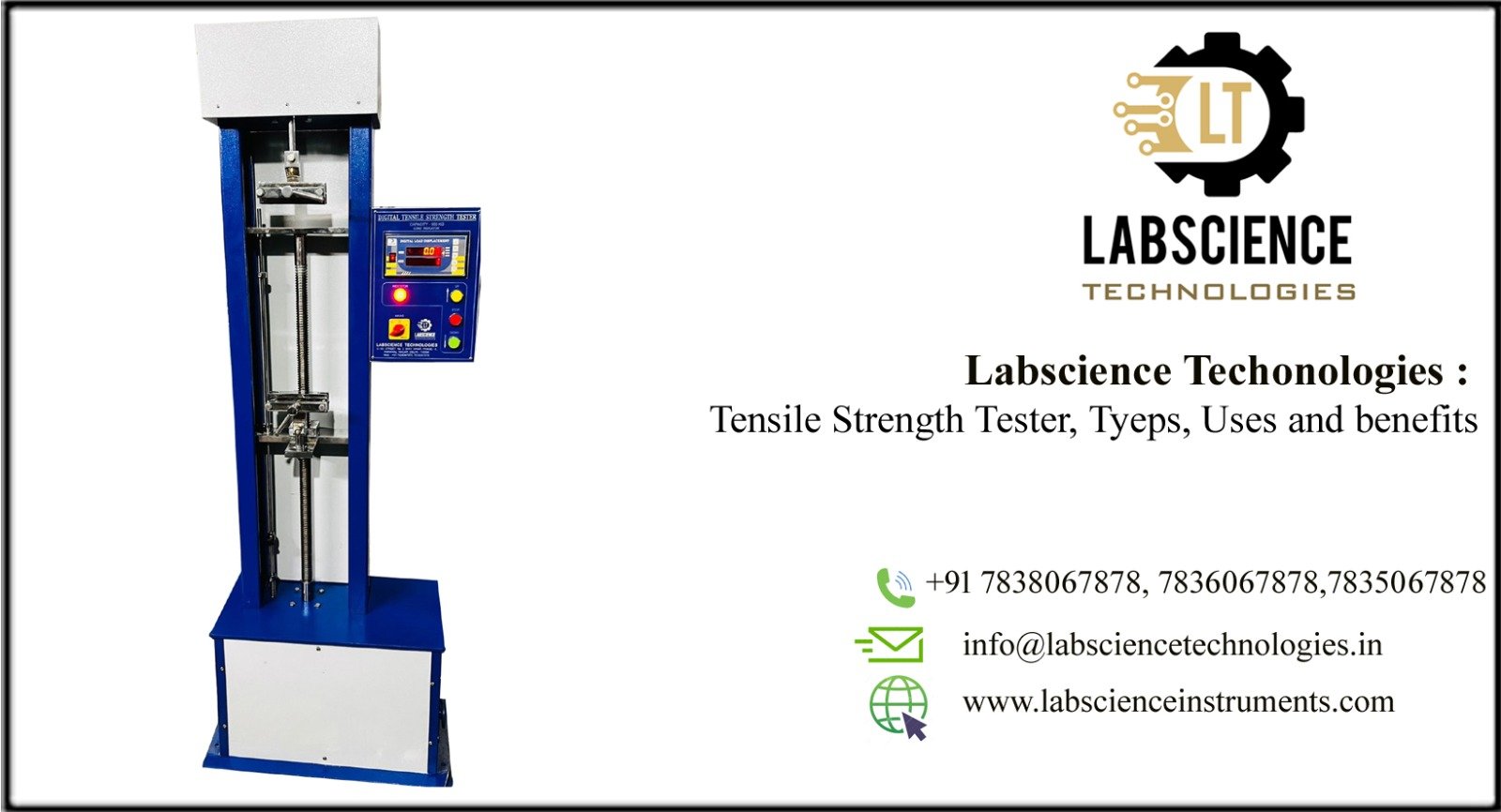Tensile Testing Machine
A Tensile Testing Machine, also known as a Universal Testing Machine (UTM), is an essential piece of equipment used to determine the tensile strength and elongation properties of materials. Widely used in industries such as plastics, textiles, metals, and rubber, it assesses how a material behaves when subjected to a pulling or stretching force. The machine applies a controlled tensile force to a sample until it breaks or deforms, recording critical data such as maximum tensile strength, elongation at break, and modulus of elasticity.
The machine consists of two main components: a load frame and a control unit. The load frame includes grips that hold the material sample, which can be shaped as a bar, sheet, or rod, depending on the material type. The control unit manages the force application, speed, and data collection.
In a typical tensile test, the sample is pulled at a constant speed until it fractures. Throughout the process, sensors measure and record the applied load and the material’s deformation, creating a stress-strain curve. This curve helps manufacturers and engineers ensure that the material will perform as expected in real-world applications, whether it’s for structural components, packaging, or any product requiring specific mechanical strength.
A Tensile Testing Machine offers a range of features that make it indispensable for evaluating the mechanical properties of materials. Some of the key features include:
Versatile Testing Capability: Tensile machines can perform various tests such as tensile strength, compression, bending, and shear, making them ideal for a wide range of materials, including plastics, metals, textiles, and rubber.
Precision Load Cells: Equipped with high-accuracy load cells, these machines ensure precise measurement of force during testing. This accuracy is crucial for consistent and reliable test results.
Variable Speed Control: The machine allows users to control the speed of the testing process, ensuring that different materials can be tested under specific conditions, such as slow pulling for brittle materials and fast testing for more elastic ones.
Digital Display and Data Recording: Modern tensile machines come with digital interfaces that display real-time data like load, elongation, and stress-strain curves. Many systems also allow for data export and analysis through specialized software.
Interchangeable Grips and Fixtures: The machine comes with adaptable grips and fixtures to hold samples of various shapes and sizes securely during the test.
Robust Construction: Designed for durability and heavy-duty use, these machines are built with sturdy frames and components to withstand the demands of rigorous testing over time.
These features make tensile testing machines essential tools for ensuring material quality and performance across industries.
A Tensile Testing Machine is engineered to provide precise measurements of material strength and elasticity. Here are the detailed specifications:
Load Capacity: Typically ranges from 1 kN to 200 kN, accommodating a broad spectrum of materials. High-capacity models are available for testing heavy-duty materials and components.
Load Cell Accuracy: Equipped with load cells offering an accuracy of ±0.5% of the reading or better, ensuring high precision in force measurement.
Testing Speed: Adjustable from 0.001 mm/min to 500 mm/min, allowing users to test materials at speeds that match their mechanical properties and testing requirements.
Displacement Resolution: Capable of measuring displacement with a resolution of ±0.1% of the reading. This is essential for assessing material elongation and deformation accurately.
Grips and Fixtures: Comes with a variety of grips and fixtures, including wedge grips, pneumatic grips, and custom fixtures, to securely hold different sample types and sizes, such as sheets, rods, or fibers.
Frame Dimensions: The testing frame size varies, with smaller models for laboratory use and larger models for industrial applications. Typical dimensions include a test space height of up to 1.5 meters and a crosshead travel distance of up to 1 meter.
Software Integration: Includes advanced software for real-time data acquisition, stress-strain curve generation, and comprehensive analysis. Features often include customizable test methods, automated reporting, and data export options.
These specifications ensure that a tensile testing machine can deliver accurate and reliable data for evaluating material performance and quality across various industries.
Kindly fill this form to demand a call-back to from our client support boss with esteeming and details.
Call our Specialists for the Best Deal
+91 7838067878
Call Now
+91 7838067878

